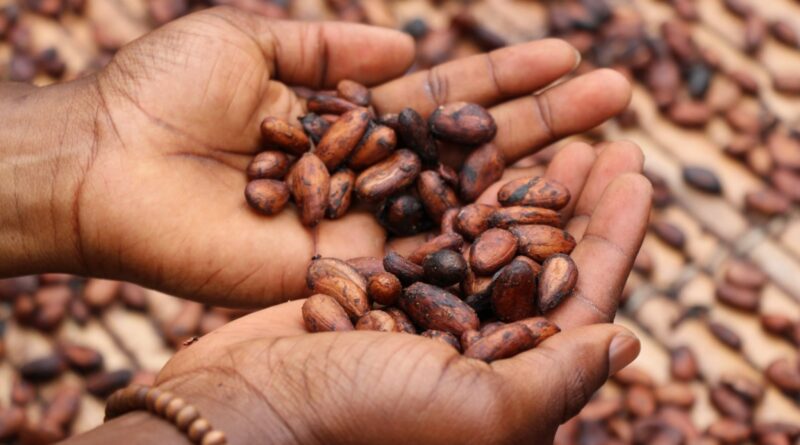Africa: Organised Crime Is Infecting African and Global Supply Chains
The fishing and cocoa industries show how criminal networks and corrupt officials exploit multinational supply chains.
Transnational organised crime is usually associated with violent mafia-style groups that traffic drugs, people, arms and wildlife. Less dramatic but equally damaging is the effect of organised crime on global supply chains for legal goods.
These logistics networks provide many opportunities for crime syndicates to commit various illegal activities. Illicit labour practices, business fronting, and misrepresenting price and quantity are just some examples that threaten the procurement, transportation and retail systems for the global commodities trade.
Industries and governments are familiar with shrinkage from global supply chains and consider the loss of tax revenue as ‘the cost of doing business.’ However, the increasing involvement of organised crime networks raises the risk of financial and reputational damage. It also makes consumers unwittingly complicit in unsavoury sourcing and supply practices.
There are many vulnerable supply chains from and in Africa. The fishing and cocoa industries are good examples of how multinational logistics systems present opportunities for exploitation by insiders, criminal networks and corrupt government officials.
Illegal fishing is hidden by document fraud, scant inspection of containerised shipments and bribes
The global fish industry generated over US$164 billion in exports in 2018, 60% of which came from developing countries. Illegal, unreported and unregulated fishing makes up a significant portion of this global economy. It is conservatively estimated that the European Union alone imports 500 000 tonnes (worth Ꞓ1.1 billion) of illegal fish annually. In African waters in particular, this practice has profoundly negative effects – depleting fish stocks, decreasing biodiversity, damaging ecosystems and threatening food security.
About two-thirds of cocoa production for the US$30 billion global chocolate industry occurs in West Africa. Illegal activity in that region has fuelled the loss of hundreds of thousands of acres of forest and is responsible for an array of human rights abuses.
A complex web of licit-illicit relationships – both witting and unwitting – facilitate criminality at various stages of the supply chains in these two industries.
Human trafficking for forced labour onboard fishing vessels is a serious problem. Brokers use deception or coercion to recruit fishers and migrant workers to toil in terrible conditions. Unethical fishing practices, such as the illegal use of high sea drift nets of up to 20 km long, damage fragile marine ecosystems and result in overfishing. The haul is then sold on to illegal middlemen.
Compliance lapses meant cocoa was approved from farms that violated child labour and deforestation laws
Transhipment (moving fish from fishing vessels to refrigerated transport ships at sea) allows overfishing, ‘laundering’ of the catch by mixing illegal and legal fish, and misreporting actual volumes extracted.
In the chocolate industry, cocoa farmers help drive deforestation in Côte d’Ivoire by allowing loggers and timber traders to illegally remove trees from protected areas to make way for cocoa crops. The industry is also dogged by reports of forced and child labour, sustained by human smuggling and trafficking networks.
This criminality becomes murkier when other professionals are involved. These include industry experts who develop legitimate business infrastructure to front illicit operations; or business owners, lawyers and bankers who launder money and evade taxes. It also entails corrupt state officials who enable smuggling and other criminal transactions. Legitimate transport networks are also drawn in to smuggle stolen commodities, drugs, arms or people alongside legal stock.
Illegal, unreported and unregulated fishing is often hidden by document fraud, scant inspections of containerised shipments and bribes for government officials. The fishing industry can also be a cover for other forms of organised crime, including drug and arms trafficking.
The same applies to the chocolate business. In 2019, significant lapses in compliance reviews of the cocoa industry resulted in the approval and certification of cocoa from West African farms that violated child labour and deforestation laws.
National security can be threatened by the creation of a parallel, illicit and unregulated economic system
Similarly, a recent investigation revealed that licensed buying companies and farmer groups in Ghana were illegally renting their cocoa certification licences to cocoa traders. This allowed them to export ‘certified’ cocoa from uncertified farms, making a sizeable profit in the process since licences enable farmers to charge a premium on their beans.
The range of crimes that can be committed along these supply chains makes it difficult to accurately quantify the overall impact. Disrupting crime at one point in the system may not curtail criminality at other points, and may even cause new offences to emerge elsewhere.
Businesses and individuals invested in supply chains who know or suspect that crime is happening may not even know where to direct law enforcement. These challenges are exacerbated by the involvement of corrupt government officials, sometimes at the highest levels, and the transnational dimensions of supply chains and crime networks. And the lack of cooperation between countries doesn’t help.

Sign up for free AllAfrica Newsletters
Get the latest in African news delivered straight to your inbox
Several good practice interventions have been tested. These include voluntary standards, certification and traceability systems, and artificial intelligence security. However, these actions don’t always eradicate the targeted crime, and are undermined by corrupt public and private actors willing to break or circumvent the law for a price.
This systemic form of transnational organised crime presents fundamental barriers to development, the rule of law and good governance. Even national security is threatened by the creation of a parallel, illicit and unregulated economic system.
Prevention requires closely monitoring individual commodity supply chains to understand where their fault lines lie, and developing corresponding interventions. This will entail a whole-system approach involving public-private partnerships that gather and share information, pool resources and develop innovative solutions. And central to any solution is taking aim at corruption.
Romi Sigsworth, Research Consultant, ENACT, ISS

